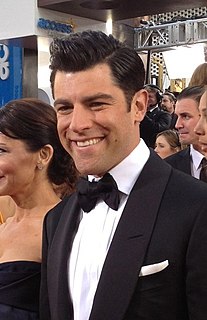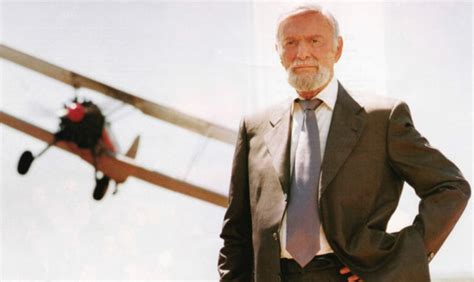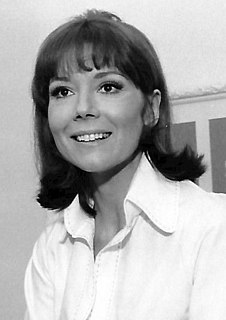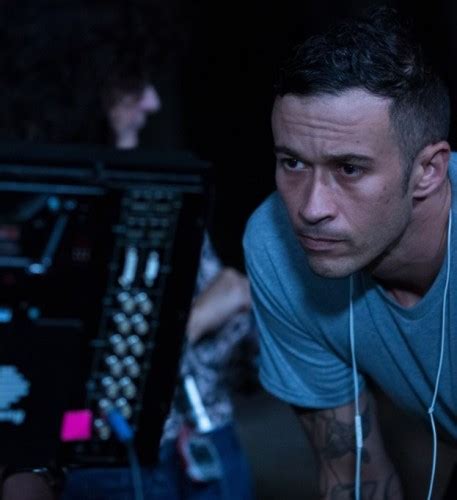A Quote by Udo Kier
I don't like to work with directors who have taken an adoption from another script writer, because it's too much: one of them writes it and then has to explain it to the other, or maybe the director sees it in a way the writer doesn't want it.
Related Quotes
Writer-directors are a little bit more liberal, rather than having just the writer on the set, because I think sometimes the writer becomes too precious with the words. If you're a writer-director, you can see what you're doing and see your work in action, so I think you can correct it right there and still not compromise yourself.
The dream, I think, with any project is it starts with an idea, and then somebody writes it, and the writer hopes that a director comes on and makes this piece of material visual, and both the director and writer hope that they can have actors come in and bring something to it that neither one of them expected, elevating it along the way.
It's akin to style, what I'm talking about, but it isn't style alone. It is the writer's particular and unmistakable signature on everything he writes. It is his world and no other. This is one of the things that distinguishes one writer from another. Not talent. There's plenty of that around. But a writer who has some special way of looking at things and who gives artistic expression to that way of looking: that writer may be around for a time.
You have to understand that people feel threatened by a writer. It's very curious. He knows something they don't know. He knows how to write, and that's a subtle, disturbing quality he has. Some directors without even knowing it, resent the writer in the same way Bob Hope might resent the fact he ain't funny without twelve guys writing the jokes. The director knows the script he is carrying around on the set every day was written by someone, and that's just not something that all directors easily digest.
Part of why I wanted to produce was because I wanted the opportunity to work on projects I want to see. As a writer and as a director, I'm very specific about the kinds of things that I want to do. The opportunity that producing has given me is that by working with different writers and trying to get their movies made, or developing their script, or making their movies, every time I'm doing it, I'm learning and then bringing something to my own work. I like to think that there's a little bit of back and forth that goes on.
It's not possible to advise a young writer because every young writer is so different. You might say, "Read," but a writer can read too much and be paralyzed. Or, "Don't read, don't think, just write," and the result could be a mountain of drivel. If you're going to be a writer you'll probably take a lot of wrong turns and then one day just end up writing something you have to write, then getting it better and better just because you want it to be better, and even when you get old and think, "There must be something else people do," you won't be able to quit.



































